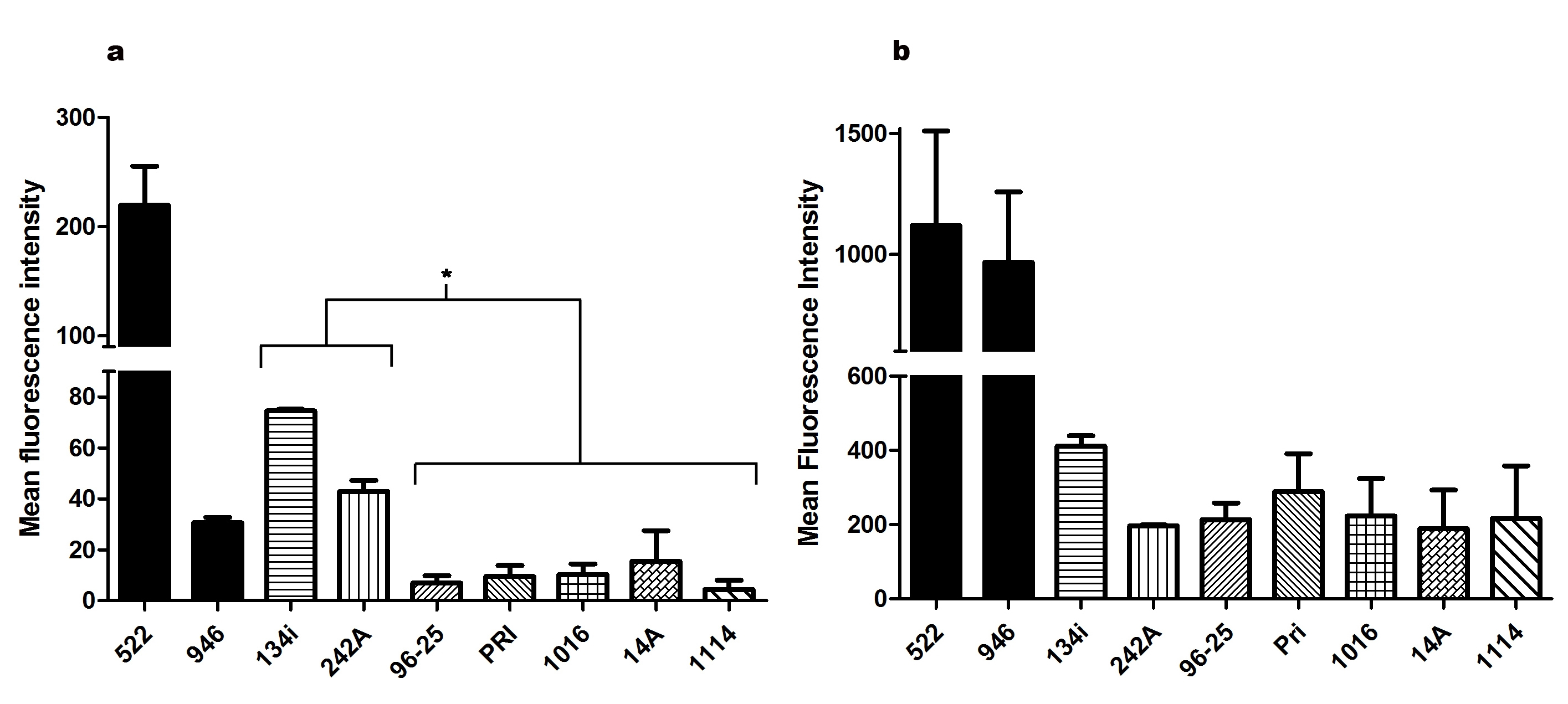Abstract: Candida albicans is the most frequent fungal species that causes infections in humans. Fluconazole is the main antifungal used to treat Candida infections, and its prolonged and indiscriminate use for the last decades are the most established causes which originated resistant strains. Fungal drug resistance is associated to alterations in ERG11 gene and overexpression of multidrug resistance (MDR) transporters belonging to two families: ATP-binding cassette (ABC) and Major Facilitator Superfamily (MFS). To evaluate the role of MFS transporters in azoles resistance of C. albicans clinical strains, this study aimed to analyze four Candida albicans clinical isolates from the University Hospital in Juiz de Fora (Minas Gerais/Brazil), selected in our previous study as they were unaffected by FK506, an ABC pumps inhibitor. In a primary investigation on MFS proteins overexpression, the extrusion of fluorescent substrates (rhodamine 6G and nile red) was analyzed by fluorescence microscopy and flow cytometry. Results suggest participation of MFS transporters in azole resistance of C. albicans isolates and indicate the existence of secondary resistance mechanisms. Therefore, this study contributes to the information about Candida albicans infections in Brazil and reinforces the importance of epidemiological studies focusing on an improved understanding of the disease and further resistance reversion.
Key words
Candida; fluconazole; MFS; multidrug resistance; yeast

 Thumbnail
Thumbnail
 Thumbnail
Thumbnail
 Thumbnail
Thumbnail


